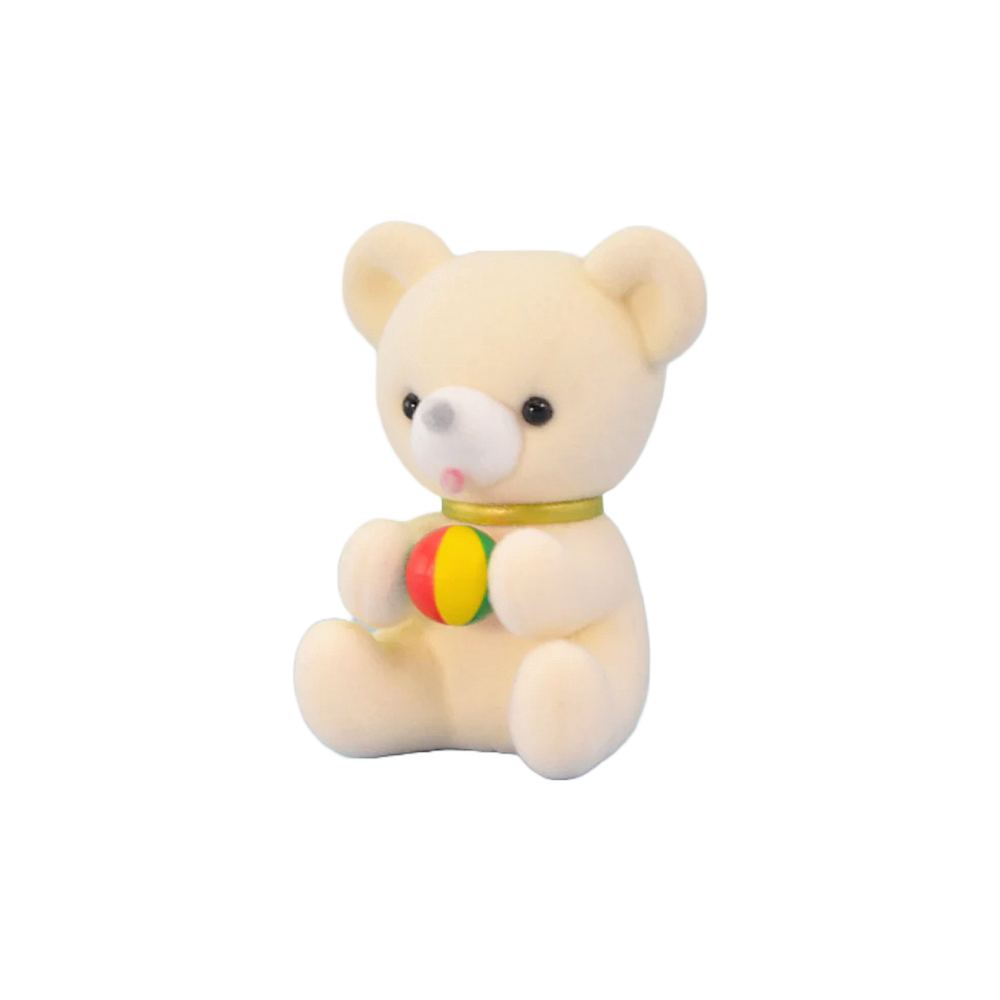Caring for Our Youngsters and Ourselves in Tragic Conditions

Janet shares phrases of help.
Transcript of “Caring for Our Youngsters and Ourselves in Tragic Conditions”
Good day, that is Janet Lansbury. Welcome to Unruffled.
Presently I’m going to be speaking about caring for ourselves and our youngsters in instances of disaster, like this disaster that our entire world appears to be in right now. And I hope what I’ve to say furthermore applies to crises in our private life, in our communities. How will we take care of ourselves whereas caring for the larger struggling of others? How will we uncover our means when it’s all so overwhelming? I’m no educated, so I can solely humbly share what I’m studying from others who’re, and what I’ve found for myself that helps me, and likewise some specifics for serving to our youngsters.
So, the rationale that could be very targeted on us is due to we’re our youngsters’s primary, as their mother and father or caregivers. After we develop to be mother and father, we cope with an infinite accountability that challenges us to our depths, brings us numerous ache, nonetheless in addition to large pleasure. Our vitality and affect over these youthful individuals is simple and it’s unrelenting. It’s a job that solely we’ll do, we’re it. We’re their baseline, frequently. The baseline for our youngsters’s well-being is ours. That could possibly be daunting, I do know. And as I launched up all through the intro, I do know some factors about caring for teenagers; I don’t know as fairly a bit about caring for ourselves, and I’m studying. So I’m going to share what helps me and likewise what I’m studying from people who uncover themselves specialists on this subject.
And on that phrase of studying from others, I’m studying that I’ve to be discerning relating to the enter that I’m receiving. And after we’re taking in data and views, to deal with the deal with feeds that feed us, feed our spirit comparatively than draining us. And doubtless that’s not being on media in the least. There’s fairly a bit misinformation, fairly a bit rage and hate. So whichever views we’re letting in and giving our consideration to, I’m studying that for me not decrease than, it’s vital to deal with checking in with myself and preserve assessing: Is that this fueling my empathy and compassion, or is it draining it? It’s actually okay to not be glued to the information 24/7, notably if we’re caring for youthful children—which I’m not anymore, my children are adults. Nonetheless, I’m creating boundaries for myself all through the sources that I regulate to and I’m limiting the instances that I affirm in. And, as you all know better than I do, we’ll nonetheless help a specific voice, an individual, or a web based net web page by following them after which muting them, in all probability, and checking in when it really works for us. So, I’m studying to make the most of the media, not look away from it, however use it in a method that I can digest and that helps me to be all through the place that I’ve to be for the individuals I care about, in order that I could very effectively be of service not directly.
After which I want to recommend furthermore specializing in what we’ll do, who needs us most, which is our child, and accepting these limitations. Our precedence ought to be this job that solely we’ll do, which is elevating a safe child, elevating a compassionate problem-solver, and a future peacemaker. That is the most important reward that we’ve obtained the pliability to carry to the world.
So, specializing in that, after which from there, are there strategies whereby we might very effectively be of service?
Youngsters, they supply us this reward in all troublesome instances, instances of disaster, this reward of the mundane. They nonetheless have all their uncommon needs and emotions. They nonetheless ought to cry over—seemingly, comparatively—small factors, they nonetheless ought to play and giggle and be foolish with us. They nonetheless income from the dependable daily routines that we’ve developed with them. So I’d try to enable for this therapeutic reward and welcome it. It’s good for us, and it’s good for our youngsters. Optimistic, it’s widespread to primarily actually really feel liable for the various privileges in our lives, the privilege of our life, the privilege of our security. And typically, sure, our emotions of guilt are an indication that there’s one issue additional that we’ll do and need to do, there are adjustments that we’ll make. Nonetheless guilt alone doesn’t have an effect on us or anybody positively. It drains, it hurts. So what I try to do is—and I’ve loads of guilt, take into consideration me—I try to flip my guilt into gratitude and, from there, empathy and compassion. I don’t frequently succeed at that, however that’s my intention.
And talking of sources that feed us, I’ve to share some very sensible phrases from one among my favourite sources, which is Susan David. She’s the writer of Emotional Agilityshe’s been a buyer on this podcast, and he or she has a e-newsletter that I couldn’t counsel additional, it’s at susandavid.com. Likelihood is you may be a part of a free e-newsletter. And listed beneath are some ideas that she shared this earlier week. I’m merely taking an excerpt, so this isn’t your full piece. You’ve acquired to go be a part of your self to see it. Now I’m direct quoting her:
So how will we defend ourselves—and our potential to be compassionate—in a world that appears to be asking increasingly more additional of us day by day? It’s vital to acknowledge that “empathy fatigue” or “compassion fatigue” doesn’t come up from having “an excessive amount of” compassion or empathy. Actually, after we reduce empathy or compassion all through the face of exhaustion or burnout we’re additional inclined to actually perpetuate burnout comparatively than reduce it, due to we numb our pure tendencies to attach and commune with others.
So as a replacement of trying to blunt our inclination throughout the course of empathy or compassion, it could possibly be useful to consider study to boost emotional regulation skills, together with self care, setting boundaries, and recognizing what’s inside our sphere of affect and what isn’t. Do not forget that in an effort to maximise our compassion for others and reduce our hazard of burnout, we must always all the time furthermore present compassion to ourselves. None of us can do every little issue for everybody. None of us can take away ache from the lives of the individuals we love. Nonetheless all of us can do one issue, and accepting our personal limitations is integral to a compassionate life.
So, none of us can take away ache from the lives of the individuals we love, however we’ll be a part of. We’ll be a part of with them to carry compassion to them and ourselves. So for people who’re blessed to have individuals in your lives that do want you, in all probability even exterior of your children, individuals as a technique to be with, commune with them, notably in instances like these.
Listed beneath are one different factors that I do. I cry. In the meanwhile, I’m crying not decrease than as shortly as a day. And it’s so attention-grabbing to me that I nonetheless expertise this second of resistance. It’s like this little wall of resistance, this voice saying, Oh, don’t do that. It’s going to make you’re feeling dangerous. Don’t give into this. Nonetheless nonetheless, merely as with our youngsters, it actually not does. It releases one issue that permits me to primarily actually really feel slightly little bit of bit better, slightly little bit of clearer, a little bit of further linked to my humanity, weak and as a consequence of this actuality open to others. I recommend, I’m a crier. In case you happen to’re not a crier, then in all probability there are one different methods which you will enable your self to launch your emotions. In therapeutic methods, not strategies whereby actually find yourself making us endure additional like after we’re enraged after which we really actually really feel accountable about that or remorse that. We have now to deal with caring for ourselves, loving ourselves. It’s vital for caring for our youngsters.
Now, how will we deal with to our youngsters about our emotions? Like, say we’re crying. And the best way during which will we deal with to them about what they is maybe listening to or seeing? At the beginning, focus. To their perspective, to their questions, their emotions. Then, to the questions they’ve, current trustworthy, easy, age-appropriate responses and explanations. “You see me crying. I’m feeling unhappy due to people are combating and hurting one another, and I would like there was one issue I will do to assist them make peace.” One completely different reward of having the ability to be trustworthy with our youngsters is that it affirms us, it helps us get our coronary coronary heart and specific how we’re feeling.
And saying, “I’m feeling unhappy,” it’s this small adjustment from saying, “I’m unhappy.” That’s a bent that I nonetheless have, to have the sensation be practically my id in that second. Nonetheless that is one issue I furthermore realized from Susan David, to present your self that distance as an individual from the feelings. It’s a perspective that helps us evidently emotions switch by us, they aren’t caught areas. They’ve a starting, center, and finish, as Magda Gerber talked about. So right now, I’m feeling unhappy. Susan David even says typically to say to ourselves, “I’m noticing that I’m feeling . . .” Even giving it a little bit of further distance in order that we won’t solely have a additional healthful relationship to our emotions, however perceive them. It takes that little little little little bit of distance to grasp it as a replacement of being merely absolutely absorbed in and overwhelmed by it.
After which with children, we frequently need to do what I’m frequently harping on on this podcast: encourage them to specific their emotions, or not. Perhaps they don’t have what we would anticipate as emotions a few state of affairs. Merely encourage them to specific it in no matter means they do, or not specific it throughout the event that they haven’t processed it satisfactory nonetheless. And naturally, if we’re in or close to hazard ourselves, we’ve to remind children with as fairly a bit confidence as we’ll muster, “I’m correct proper right here to deal with you protected,” together with welcoming their emotions.
And we’ll mannequin for our youngsters, with them and with others, small acts of kindness. Correct proper right here’s farther from Susan David’s e-newsletter. She says:
The enticing problem about compassion is that it’s a apply we’ll all develop. One methodology to develop to be additional compassionate is to note moments in your daily life for individuals who’re inadvertently withholding compassion. It’s straightforward to get so caught inside our personal heads that we miss choices to take care of ourselves and others. We change by the world on autopilot, failing to grasp the small methods we’ll contribute: taking up an additional family chore to help an anxious companion, calling a lonely good buddy who merely moved to a mannequin new metropolis. These easy gestures might in all probability probably not really feel heroic, however compassion doesn’t require us to be heroes. It merely asks us to deal with what we’ll do for others whereas honoring what we must always all the time do for ourselves.
And now I’d an similar to to finish this with a prayer for the Center East battle by the Archbishop of Canterbury, the Most Reverend Justin Welby:
God of Compassion and Justice,
We cry out to you for all who’re struggling all through the Holy Land throughout the present day.
In your treasured children, Israelis and Palestinians,
Traumatized and in concern for his or her lives;
Lord, have mercy.
For the households of the bereaved,
For lots of who’ve seen images they are going to on a regular basis keep in mind,
For these anxiously ready for knowledge, despairing with every
passing day;
Lord, have mercy.
For youthful men and women,
heading into wrestle,
bearing the burden of what others have achieved and what
they are going to be requested to do;
Lord, have mercy.
For civilians in Israel, Gaza and the West Financial institution, that they
might very effectively be protected and that each life would rely and be
cherished and remembered;
Lord, have mercy.
For the wounded, and folk going by means of a lifetime of scars,
for these desperately in search of medical treatment the place there
is none;
Lord, have mercy.
For medical and emergency personnel, risking their very private
lives to avoid dropping these of others;
Lord, have mercy.
For lots of who cannot see one factor however rage and violence,
that you simply simply’d shock them with mercy, and swap their
hearts throughout the course of kindness for his or her fellow human beings;
Lord, have mercy.
For individuals of peace, whose creativeness is massive satisfactory to
conceive of a specific means, that they might converse, and act,
and be heard;
Lord, have mercy.
Mighty and caring God, who promised that someday, swords
is maybe crushed into ploughshares, meet us in our misery,
and produce peace upon this troubled land.
Amen.
Thanks for listening. We’ll do that.






